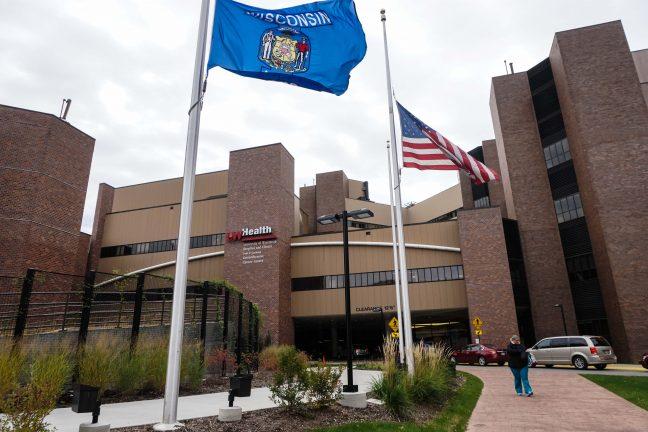The University of Wisconsin School of Medicine and Public Health’s Wisconsin Partnership Program announced Monday nearly $400,000 in grant funding for eight community-oriented public health projects in Wisconsin.
Through the new Community Collaboration Grant Program, WPP aimed to provide organizations with training and technology to address health inequities within the state. The funds were awarded under the new Community Catalyst Grant program, which is specifically focused on developing creative solutions to address gaps in healthcare access, outcomes or opportunities.
The grant provides a maximum of $50,000 over two years.
UW professor aims to help caregivers communicate with doctors
Andrea Dearlove, WPP senior program officer, said she selects projects which address public health needs for Wisconsin and work to actively engage and collaborate with local communities to solve those issues. She said the WPP holds a philosophy that the people closest to the problem are also closest to the solution, so effective solutions are created by empowering the community to find their own solutions.
“[WPP] recognizes the work communities are doing and we want to make an investment in those ideas,” Dearlove said. “[We] provide the catalytics and funds we hope will turn into something bigger and something that will have a real capacity for addressing a community’s health and improving its self-equity.”
Dearlove said it is important to recognize the gaps that exist in health care access, which are due in part to social factors, like economic standing and level of education.
The eight programs selected for grant funding are reflective of widespread social issues that exist in Wisconsin and across the nation, Dearlove added. She said the grant program tackles social issues like reproductive health care, addiction treatment and health care accessibility, specifically for incarcerated youth, veterans and low-income populations.
Executive order to end DACA leaves UW ‘dreamers’ living in limbo
Mariela Quesada, Director of the Wellness Program for Centro Hispano of Dane County, said she was able to use the funds to help the Latino community within Dane County. Quesada received $50,000 in grant funding to aid her wellness education program for Latino mothers who recently gave birth.
In partnership with pediatricians and other health professionals, Quesada developed a monthly curriculum to teach new Latino mothers about maternal well-being, breastfeeding and infant and child nutrition over the course of a year. With the new funds, she plans to expand the program by creating a house visitation program where trained health professionals can come to the mothers and educate them more frequently than just once a month.
Quesada said this sort of educational model is especially important because it would offer community members the chance to solve their own health care issues.
“For us, it’s to be able to have Latina moms providing knowledge to Latina moms,” Quesada said. “It’s really important to have the voices of the community represented in all the programs that we do.”



















